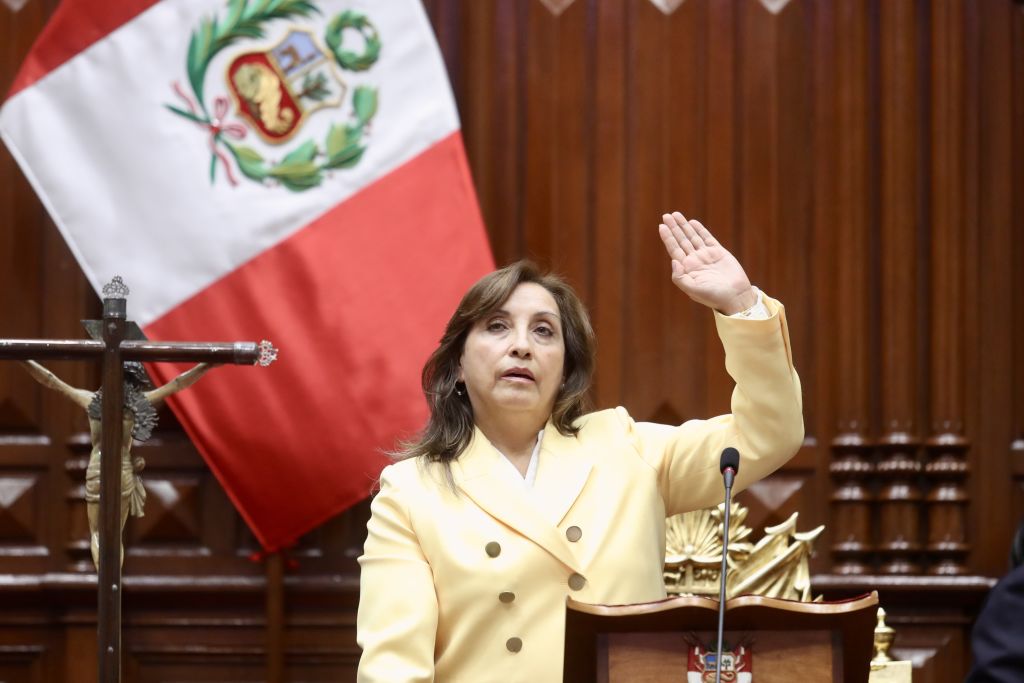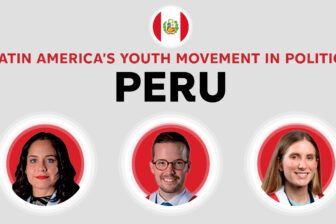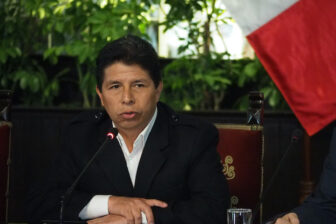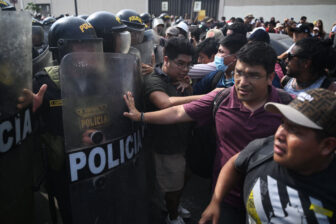She has no political party, no natural allies, very little political support, and is tasked with governing a country that has already had seven presidents in the last seven years—and looks unlikely to show greater patience this time around.
That’s the situation facing Peru’s new President Dina Boluarte, after Pedro Castillo’s illegal move to dissolve Congress resulted in his impeachment and detention by police on December 7, elevating Boluarte to the presidency.
The 60-year-old lawyer and civil servant from Apurímac, a rural area in Peru’s south, was elected as Castillo’s vice president in 2021 and served as a minister in his rapidly rotating cabinets. She seemed to understand the scope of the task ahead of her, pleading for forbearance in her inaugural address.
“I ask for time, valuable time to rescue the country from corruption and misrule,” she said, adding a request for a “political truce.” But it seems unlikely Peru’s Congress will grant her much of a reprieve.
Boluarte faces almost exactly the same challenges Castillo did when he assumed office in July 2021. Congress, where she does not command wide support, is first on the list. In fact, Boluarte was facing a constitutional accusation in the legislature until two weeks ago—for alleged irregularities in her resignation as a public official when she assumed the vice presidency. Proceedings against her were dropped, but apparently only because legislators were warming up to the idea of her replacing Castillo, whom they were determined to get rid of.
Once part of Peru Libre, Castillo’s former party, Boluarte was kicked out in January of this year after falling out with Vladimir Cerrón, the controversial former governor who is the party’s leader. Perulibristas in Congress will likely not be very inclined to support her, and the right has already demonstrated its animosity towards her—through support for the constitutional accusation, for example. Like Martín Vizcarra, who assumed the presidency in 2018 after the resignation of Pedro Pablo Kuczynski, she will be subject to the interests and calculations of lawmakers in Congress. Boluarte is under pressure to prove herself a shrewd political negotiator, capable of working with people who most likely want to see her fail—and she must do so quickly. Such an individual is a rarity in Peruvian politics.
Subscribe to the Americas Quarterly Podcast on Apple, Spotify, Google and Soundcloud
Boluarte does have a few small advantages. She was never really part of Castillo’s inner circle, so she is mostly untainted by the mounting accusations of corruption against the former president. That may help her in putting together a cabinet, as she can call upon Peruvian technocrats and politicians who might otherwise refuse to participate in this government. Whom Boluarte chooses to govern with will be crucial, as this will determine the path her administration will take in the next few months.
But the same fundamental problems remain. Impeachment, as we have seen time and time again, will remain a threat to Boluarte’s presidency if she does not achieve some agreement with Congress. And even then, such an agreement will probably be fragile, leaving her in a constant state of instability. That can only bode ill for a country currently facing a myriad of very pressing problems including high levels of poverty, increasing energy and food prices, and economic stagnation. The constant political chaos surrounding Castillo meant that there was little time for or interest in actual governing. It may be that Boluarte lacks the authoritarian urges that Castillo finally revealed, but if she displays general incompetence, that will also have disastrous effects.









